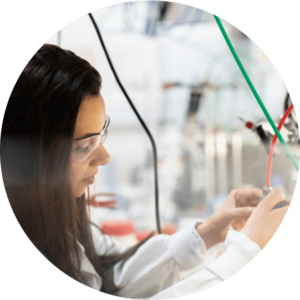
Environmental testing labs in San Diego (ETLs) play a pivotal role in assessing the health of our planet. These specialized facilities conduct a broad range of tests on samples of air, water, soil, and sometimes even wildlife, to evaluate the presence and concentrations of pollutants, chemicals, and other harmful substances. The data they generate provides a snapshot of our environment’s current condition, serving as a critical resource for making informed decisions on environmental protection, public health, and policy-making.
Here’s an overview of how environmental testing labs contribute to understanding and safeguarding our environment:
Monitoring Pollution Levels
One of the primary functions of environmental testing labs (ETLs) is to monitor levels of pollution in various ecosystems. By analyzing samples for contaminants such as heavy metals, pesticides, and industrial chemicals, these labs can identify pollution sources, track trends in environmental quality, and assess the effectiveness of pollution control measures. This information is crucial for preventing pollution from reaching levels that could harm human health or the environment.
Ensuring Public Health
Environmental testing labs directly contribute to public health by detecting potential hazards in drinking water, air, and soil. Testing for pathogens, toxic chemicals, and other pollutants helps ensure that these elements meet safety standards designed to protect human health. When contaminants are found, prompt action can be taken to mitigate risks, such as issuing warnings, implementing cleanup efforts, or revising regulations to prevent future contamination.
Supporting Environmental Restoration
Testing labs also play a key role in environmental restoration projects. By assessing the extent of contamination in degraded areas, labs provide the data needed to design effective remediation strategies. Ongoing testing during and after restoration efforts allows for the evaluation of progress and the effectiveness of interventions, ensuring that ecosystems are successfully rehabilitated and can once again support biodiversity and provide services to human communities.
Informing Policy and Regulation
The data produced by environmental testing laboratories (ETLs) is invaluable for shaping environmental policy and regulation. Governments and regulatory bodies rely on accurate, up-to-date information on environmental quality to set standards, develop regulations, and implement policies aimed at protecting the environment and public health. By providing evidence of emerging threats or areas of concern, testing labs help ensure that policy responses are timely and effective.
Advancing Scientific Research
Beyond their practical applications in monitoring and regulation, environment testing labs San Diego contribute to the advancement of scientific knowledge. The data they collect can be used by researchers to study the impacts of pollution on ecosystems, understand the dynamics of environmental change, and develop new technologies or methods for environmental protection.
